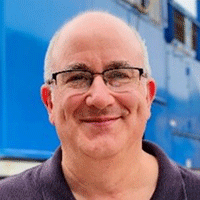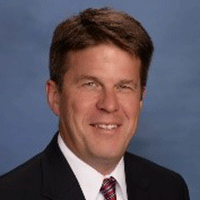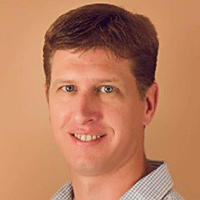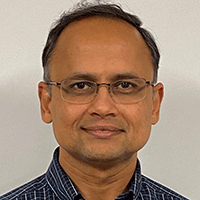Tuesday, October 22, 2024, 1:20 PM – 2:50 PM CDT
The North American rail industry is at a pivotal moment, with over 20,000 locomotives in use and minimal new production in the last five years due to the high cost and complexity of meeting EPA emission standards. The industry relies heavily on modernizing older fleets, which emit significantly more pollutants than newer Tier 4 locomotives. Regulatory bodies like the California Air Resources Board and the US EPA are pushing for reduced emissions, while railroad shareholders and customers demand lower greenhouse gas (GHG) emissions.
Technological challenges are significant, with limited resources for developing and implementing low-carbon or carbon-free fuels, such as hydrogen, ammonia, and methanol, or battery-electric locomotives. Electrification and battery development, as envisioned by the US Department of Energy, are costly and time-consuming. Furthermore, the need for interoperable infrastructure across the rail network is critical to support future technologies.
This panel will feature insights from locomotive OEM experts on managing these challenges, exploring decarbonization strategies, and discussing the limited government funding and realistic timelines for research, development, and field validation of new technologies. The session aims to offer actionable insights for advancing the industry toward a more sustainable future while balancing current operational needs.

MODERATOR
Steven G. Fritz, P.E.
Sr. Manager, Locomotive Technology Center
Southwest Research Institute
As Senior Manager of the Locomotive Technology Center, Mr. Fritz leads SwRI's activities in locomotive fuel consumption, efficiency improvements, and exhaust emissions characterization. He established the SwRI Locomotive Exhaust Emissions Test Center in 1992, and to-date, over 200 locomotives have been tested. Mr. Fritz is a recognized expert in locomotive fuel consumption and exhaust emission testing, and often serves as a consultant to industry and government on locomotive testing issues. Mr. Fritz has led numerous projects involving characterizing both regulated and unregulated exhaust emissions from heavy-duty diesel engines covering 50 to 6,000 horsepower. A number of these projects have involved low-carbon fuels, including Biodiesel and Renewable Diesel. Projects have included on-highway and nonroad engine applications, as well as locomotive, marine, and undergrounding mining.

PANELIST
Eric Dillen
Sr. Engineering Manager, Advanced Engine Technology Team
Wabtec Corporation
Eric Dillen is the Senior Engineering Manager of the Advanced Engine Technology Team at Wabtec Corporation, a leading global provider of equipment, systems, and digital solutions for the freight and transit rail sectors. His team is responsible for developing advancements in locomotive and marine engine efficiency and emissions as well as leading the research on engine decarbonization and fuel cell development. Eric has been with Wabtec (formerly GE Transportation) for 31 years where he has worked on multiple engine development programs to meet the increasingly more stringent levels of EPA emissions regulations for the rail and marine industry. Eric holds a bachelor's and master's degree in mechanical engineering from the Pennsylvania State University.

PANELIST
Justin Blomenberg
Executive Director – Power Systems Industrial Product Engineering
Cummins Inc
Justin has more than 20 years of experience in the Cummins Power Systems business, focusing on large engine and commercial genset products and technologies. In his current role, he has global responsibility for Cummins engines ranging from 19L displacement through to the company's largest engine at 95L displacement. This includes new product development, current product support, application engineering and service engineering.
He has served in multiple roles in both the manufacturing and engineering organization. His career includes roles in machining and assembly operations, current product engineering support, combustion performance and emissions, Six Sigma, customer application and service engineering, and new product development. His work in 2012 and 2013 with CO2 reduction initiatives with a major mining customer was a key part of Cummin's first public commitments to greenhouse gas reduction.

PANELIST
Cathy Choi
Executive Advisor
Knoxville Locomotive Works
Dr. Cathy Choi is Executive Advisor at Knoxville Locomotive Works and serves the Department of Energy as an appointed member of their Industrial Technology Innovation Advisory Committee. Cathy is also on the Board of Directors of the Advanced Machine and Vehicle Innovation Center. Cathy has more than three decades professional experience, primarily in power generation and transportation technology and product development. She has incubated and grown international research and development teams and led numerous, global product launches that span power ranges from 160 kW to 16.8 MW. Cathy earned her Ph.D. in Mechanical Engineering from the University of Wisconsin-Madison specializing in combustion and emissions formation and alternative fuels research.

PANELIST
Jinal Shah
Director, Engines and Engine Systems
Progress Rail, A Caterpillar Company
Jinal Shah is the Director of Engines and Engine Systems at Progress Rail, A Caterpillar Company. Jinal has been with Caterpillar Inc for over two decades working in the energy and transportation sector. He has served in a variety of roles ranging from engine design and development, product support, business development and commercial roles. In his current role, Jinal is leading the Progress Rail engine division with end-to-end responsibility for the development and application of internal combustion engines in locomotives, power products and repower programs. Portfolio of programs include improving locomotive fuel economy, emissions, alternate fuels, future products, and technology that help customers achieve their sustainability objectives.
Jinal holds a master's degree in mechanical engineering and MBA from Bradley University.